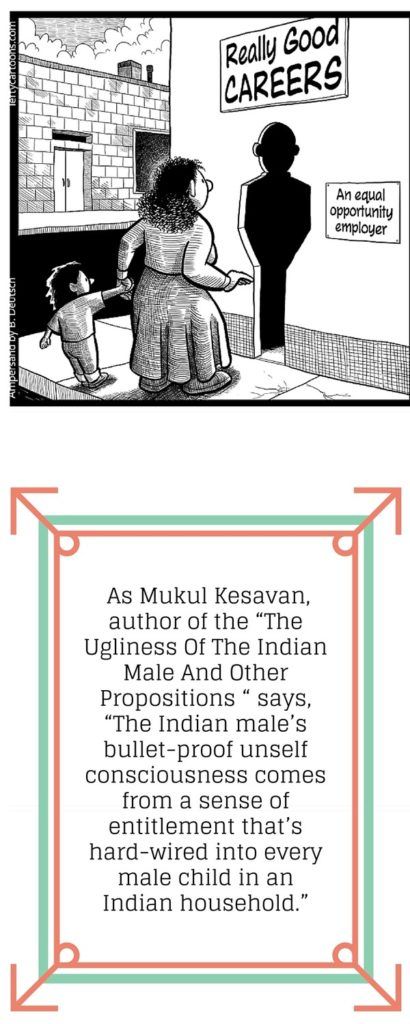Its time for a feminist narrative to change corporate Culture in India . Gender diversity initiatives in most Indian corporates ( whether Indian or MNC’s) have been passive, copy international practices and usually not effective. Throwing policy at our massive cultural inertia is like trying to use a Maruti 800 to change the course of an on rushing train . If you have been oblivious to these challenges sample this
- A hiring team at the MBA HR programme in University of Delhi asked one of my best students- if she plans to get married in the near future, apparently they were afraid of “attrition”
- A client which did not take forward a woman candidate because – the CEO had a problem with her not being married in her late 30’s ! that’s the last time I worked for them- but I got to know that this was not an aberration but an unwritten policy. Apparently he could not reconcile the single status to his concept of a “woman”
- A business leader I know was told by her reporting manager that the reason for her sub- par performance rating was that the organisation carried her through her extended maternity crisis!
- A friend from college was told that her rating was below par because she did not ask/ push for higher one like the boys!
- Advertising campaigns by some of the best MNC’s in the world are a mirror to some of our most entrenched biases-
- Hindustan Unilever- they have sustained one of the most archaic body shaming campaigns in the history of the world – in the guise of “fair and lovely” and then their HR and CSR team talks about gender equality.
- Whether its Pediasure or Complan most of the nutrition advertisements have a “boy” in the central role and the girls in the periphery if not non-existent- the companies understand a male child will make parents dip into their pockets more easily
- Most Insurance campaigns are invariably sexist- focusing on the “provider man” and the protected woman.
I can go on and on but then this will sound like page from the every day sexism project; But unique to India and some other SE Asian Countries is a cultural artifact which has defined everything from gender ratios to education choices to even nutrition !! this is the sense of entitlement most of the Indian males inherit.

I have seen this entitlement manifest in curious ways
- Men negotiate compensation more vigorously and make the most outrageous demands sound as their right – Most women just give up or give in- depending on how much they want the role. Interestingly the recruiting team language also changes- men negotiating are aggressive and women negotiating are being difficult to close!!
- Interview panels confuse “entitlement” infused responses with confidence and patriarchal leadership definitions Sample this “I took hard decisions to reduce the workfore by 10% during recession” vs. Woman candidate “At the suggestion of the CFO, I worked with the HR team and right-sized the organisation by 10%”. Guess what constitutes leadership according to male panelists.
- Asking for resources can range from demand to polite request- guess what gets more attention ? ! and the more resources you have the more are your chances of success
- When I was teaching I found that some of the best students – who happened to be women needed that little dose of confidence building to get placements which did justice to their potential.
- It has a flip side too- I’ve seen women being more resilient to crisis then men- maybe they have got used to it !! -During the 2008 crisis I found women leaders/ executives who lost jobs react in a more resilient manner than the men -who didn’t know what to do when the fig leaf of a designation was removed.
So its time to take the gloves off, cultural inertia does not change with policy nudges or issuing politically correct statements – it requires activism and the stamina to bear the ensuing pain , confrontation and hard-work to make institutional changes.
Omar Farooq
Founder & CEO @ AceProHR
p.s.- One of the better sources of feminism in India is- the website feminism in India . An international source which gives stories that document every day struggle for women is the everyday sexism project- which now covers 20 countries
The cartoon above is from leftycartoons and in the title is from XKCD.

